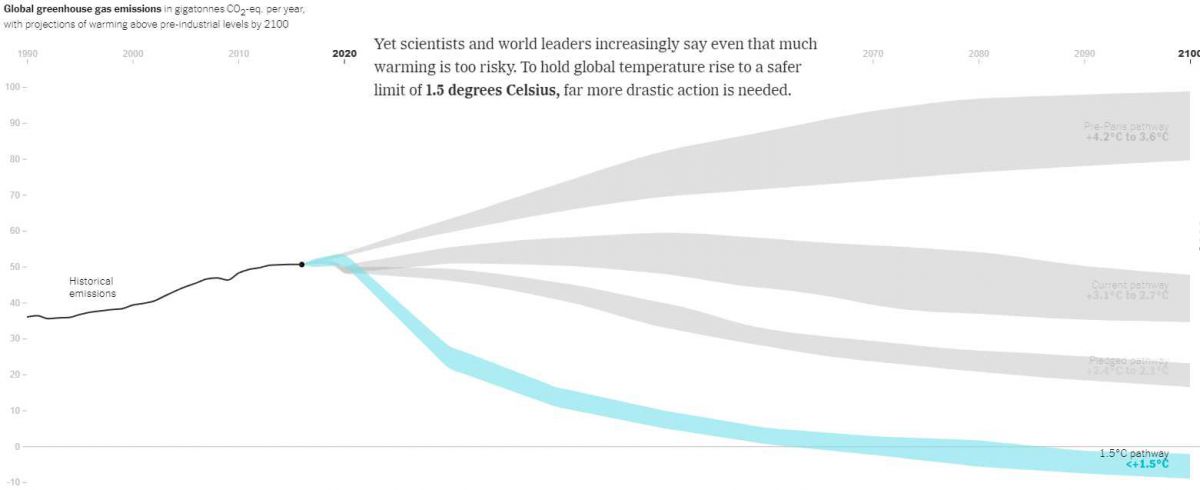The climate falks are on.
For two weeks in Scotland, Global leaders will be disucssing climate change and what they intend to do about it but what's the point when even what they SAY they will do is nowhere near enough?
We need to REDUCE carbon in the atmosphere, not keep it the same (which is the current path) or fix it a little (which is what they are discussing this week) but we need to reduce emissions by a lot, soon – or things WILL get worse. Humans have so far warmed the planet 1.1 degrees Celsius (2 degrees Fahrenheit) since preindustrial times, mainly by burning coal, oil and gas for energy, and by cutting down forests, which help absorb the planet-warming emissions created by fossil fuel use. Humanity is already paying a high price: This year alone, blistering heat waves killed hundreds of people in the Pacific Northwest, floods devastated Germany and China, and wildfires raged out of control in Siberia, Turkey and California.
In 2015, 195 nations signed the Paris climate agreement, which for the first time required every country to submit a plan for curbing emissions. While the plans were voluntary, they helped spur new actions: The European Union tightened caps on industrial emissions. China and India ramped up renewable energy. Egypt scaled back subsidies for fossil fuels. Indonesia began cracking down on illegal deforestation. Along the way, there has been some backsliding. The Trump administration rolled back some major climate policies and Bolsanaro allowed deforestation to continue in Brazil.
On the plus side, clean energy advanced far more quickly than predicted. A decade ago, solar panels, wind turbines and electric vehicles were often seen as niche technologies, too expensive for widespread use. But costs have plummeted. Today, wind and solar power are the cheapest new source of electricity in most markets.
 When the Paris agreement was signed, nations agreed that they should keep total global warming “well below” 2 degrees Celsius and make a good-faith effort to stay at 1.5 degrees. But in the years since, a slew of studies have found that 2 degrees of warming is vastly more harmful than 1.5 degrees. 1.5 degrees…
When the Paris agreement was signed, nations agreed that they should keep total global warming “well below” 2 degrees Celsius and make a good-faith effort to stay at 1.5 degrees. But in the years since, a slew of studies have found that 2 degrees of warming is vastly more harmful than 1.5 degrees. 1.5 degrees…














